Block A weighs 4N and block weigh 8N The coefficient of kinetic friction is 0.25 for all surface find the force F to slide B at a constant speed when (a)A rest on B and moves with it (b) A is held at rest and (c )AandB are connected by a light cord passing over a smooth putting as shown in fig 7.31 (a - c) restively.
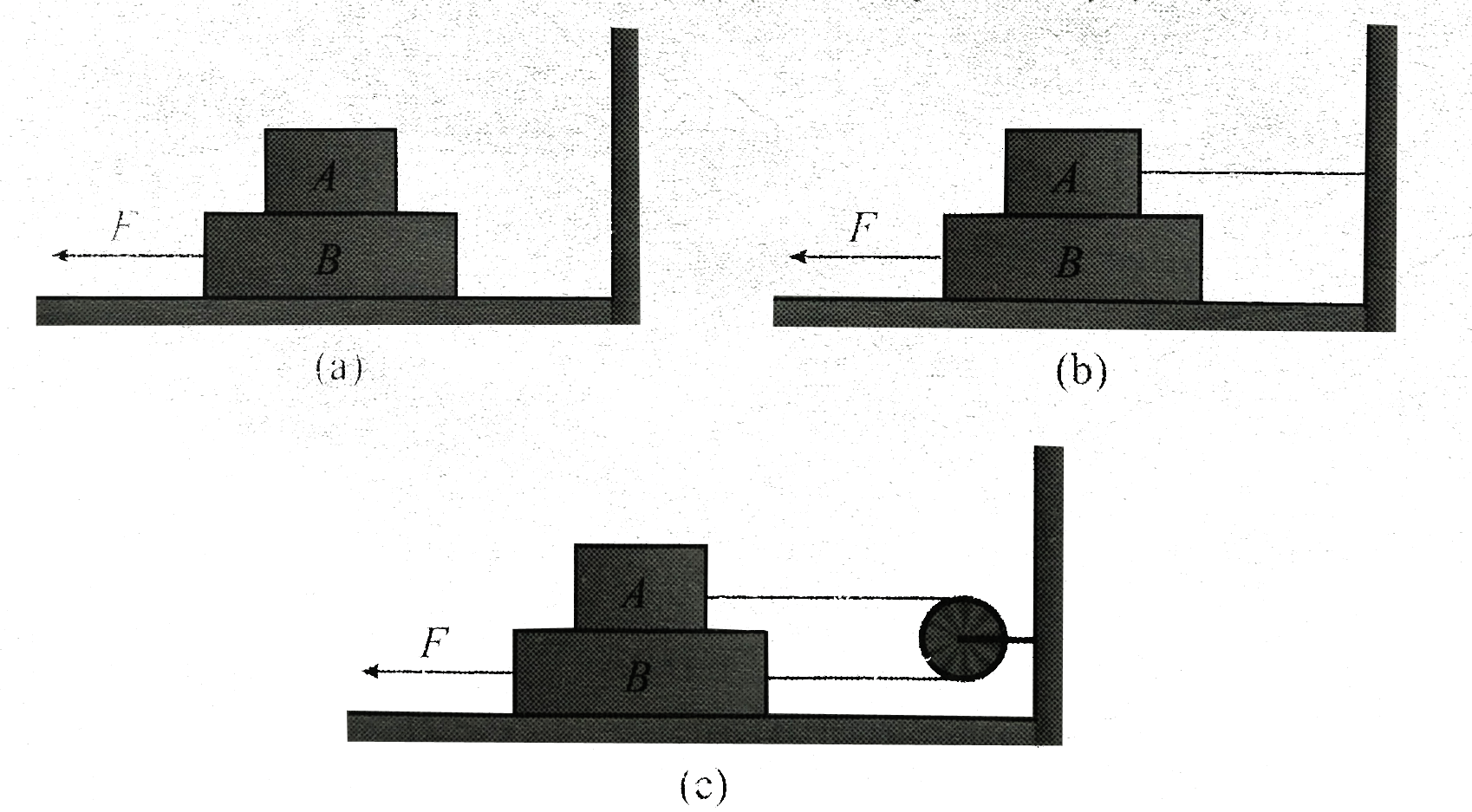
2N
3N
1N
5N
Step by step video & image solution for Block A weighs 4 N and block weigh 8 N The coefficient of kinetic friction is 0.25 for all surface find the force F to slide B at a constant speed when (a)A rest on B and moves with it (b) A is held at rest and (c )A and B are connected by a light cord passing over a smooth putting as shown in fig 7.31 (a - c) restively. by Physics experts to help you in doubts & scoring excellent marks in Class 12 exams.
Updated on:21/07/2023Topper's Solved these Questions
Similar Questions
Block A in figure-2.207 weights 2.7N and block B weighs 5.4 N the coefficient of kinetic friction between all surfaces is 0.25. Find the magnitude of the horizontal force F necessary to drag blocks to the left at constant speed if A and B are connected by a light, flexible cord passing around a fixed frictionless pulley
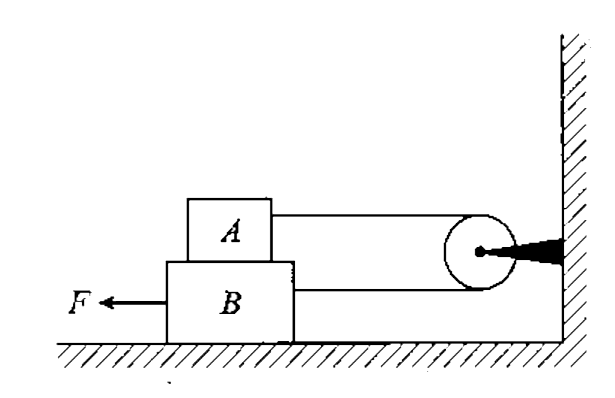
View SolutionBlock A as shown in figure weight 1.40N and block B weight 4.20N The coefficient of kinetic friction between all surface is 0.30 Find the magnitude of the horizontal force (in N) necessary to drag block B to the left at constant speed if A and B are connected by a light , flexible cord passing around a fixed , frictionless pulled.
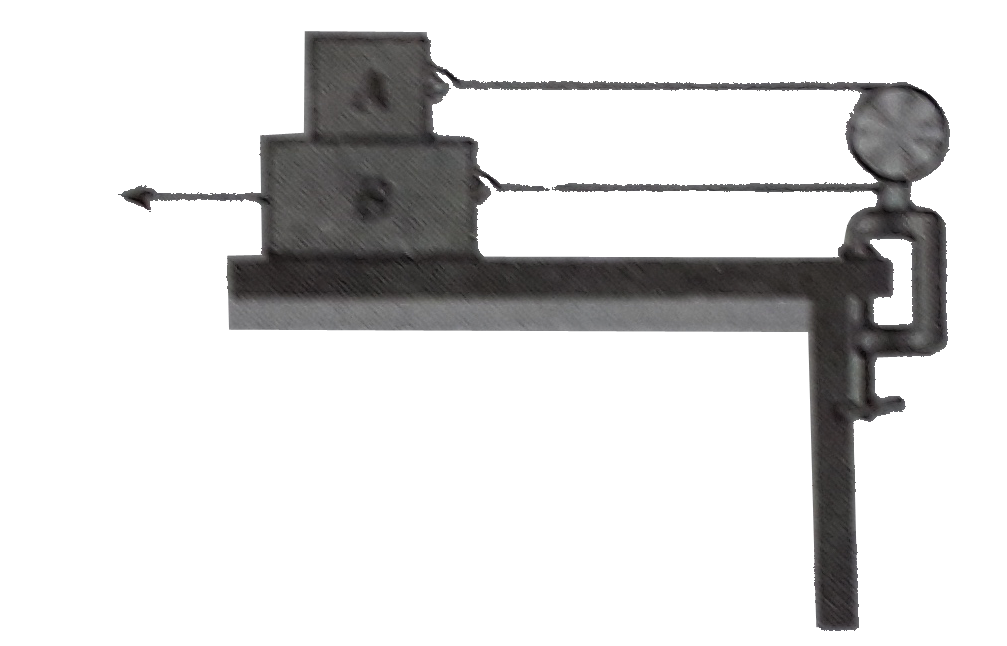
View Solution
Knowledge Check
Block A weights 4 N and block B weights 8 N. The coefficient of kinetic friction is 0.25 for all surfaces. The force F to slide B at a constant speed, when A rests on B and moves with it, is
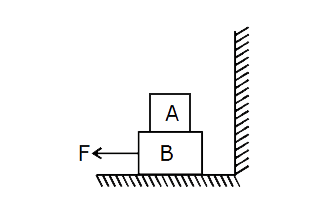 A2 NB3 NC4 ND5 N
A2 NB3 NC4 ND5 NBlock A as shown in Fig weighs 2.0N and block B weighs 6.0N The coefficient of ikinetic friction between all surface is 0.25 Find the magnitude of the horizontal force necessary to drag block B to the left at constant speed if A and B are connected by a light , flxeible cord passing around a fixed, frictionless pulley
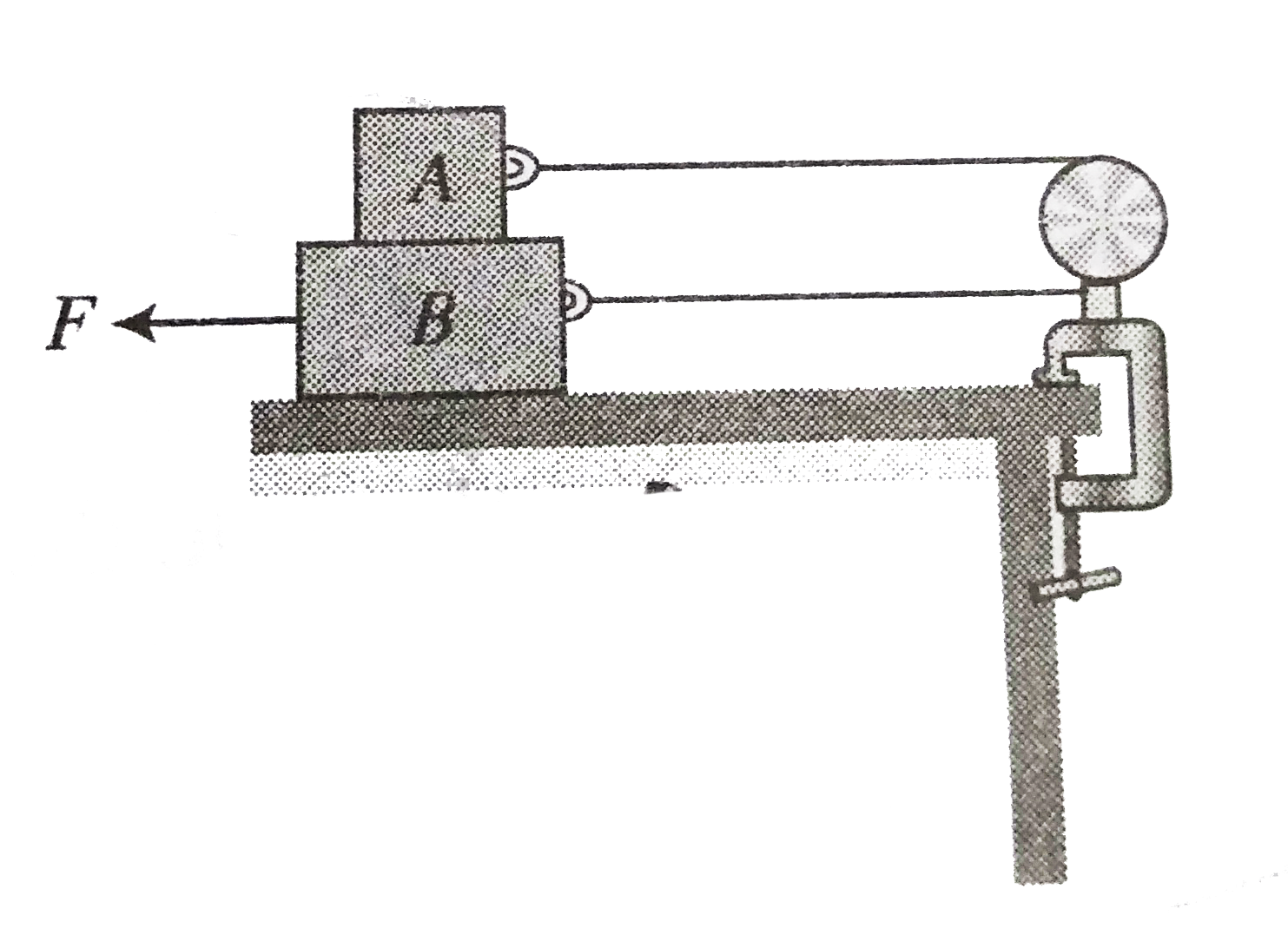 A2NB3NC5ND6N
A2NB3NC5ND6NTwo blocks A and B , each of mass 10kg , are connected by a light string passing over a smooth pulley as shown in the figure. Block A will remain at rest if the friction on it is
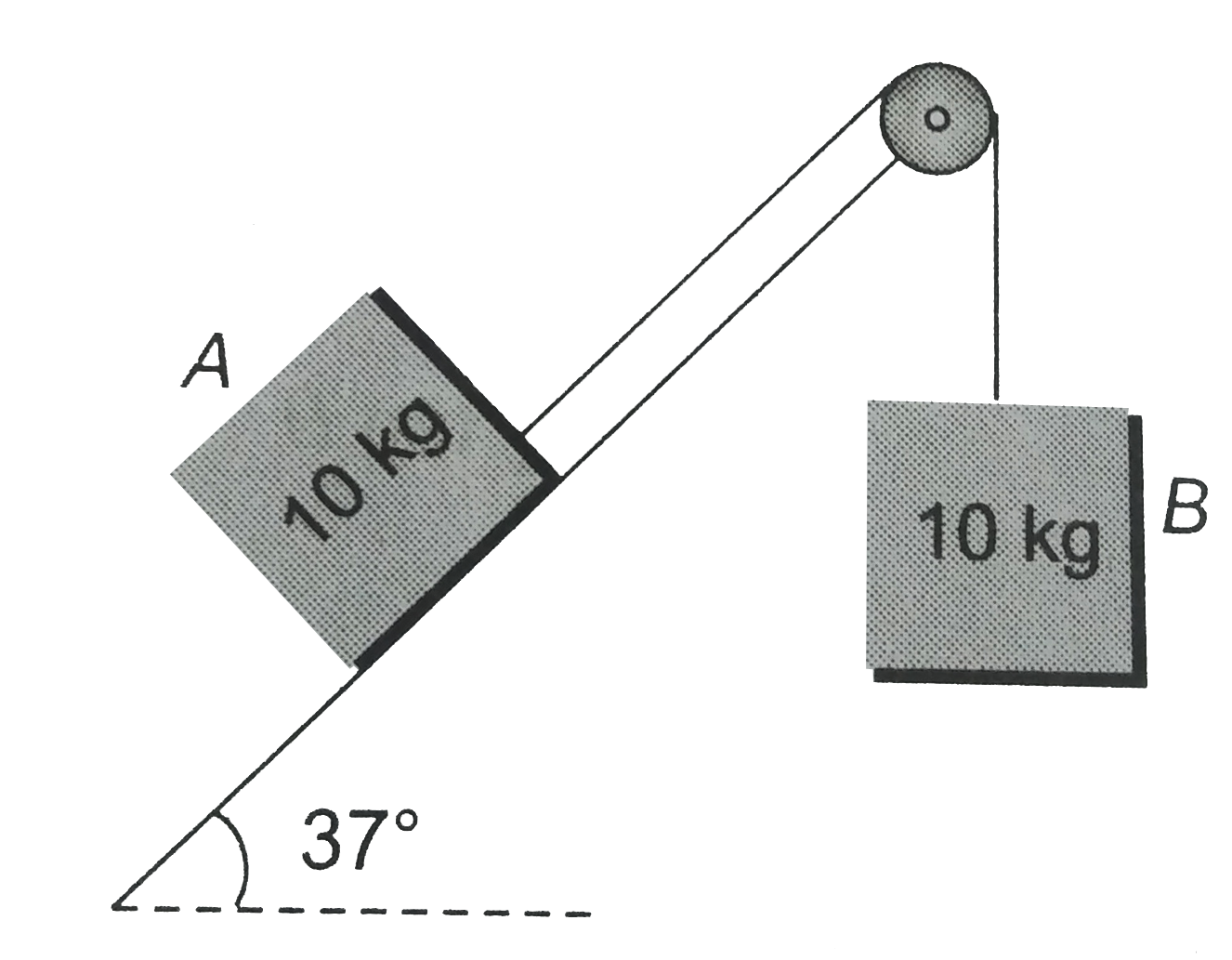 A50N up the planeB50N down the planeC100N up the planeD100N down the plane
A50N up the planeB50N down the planeC100N up the planeD100N down the plane
In the diagram shown, the blocks A, B and C weight, 3kg, 4kg and 5kg respectively. The coefficient of sliding friction between any two surface is 0.25. A is held at rest by a massless rigid rod fixed to the wall while B and C are connected by a light flexible cord passing around a frictionless pulley. Find the force F necessary to drag C along the horizontal surface to the left at constant speed. Assume that the arrangement shown in the diagram, B on C and A on B, is maintained all through. (g=9.8m/s2)
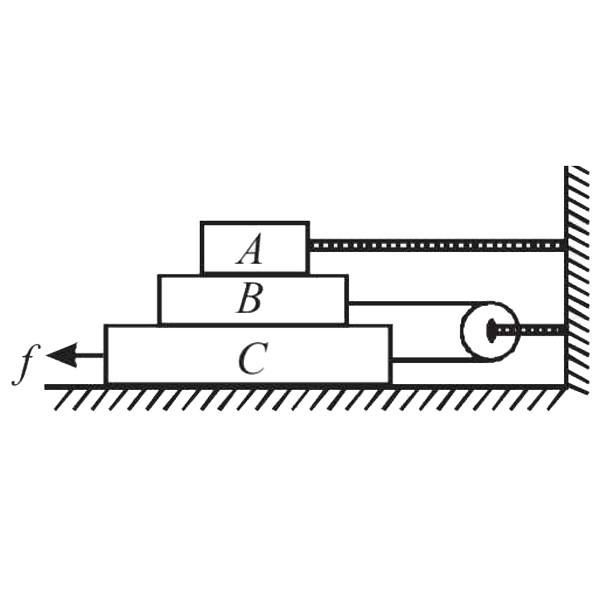
View SolutionTwo blocks are connected over massless pulley as shown in figure. The mass of block Ais 10 kg and the coefficient of kinetic friction is 0.2 .Block A sliders down the incline at constant speed. The mass of block B in kg is
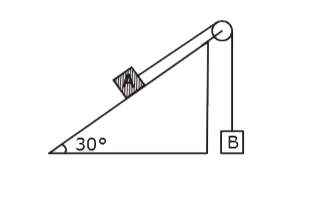
View SolutionBlock B rests on a smooth surface .The coefficient of static friction between A and B is μ=0.4 where F=30N then
Acceleration of lower block is

View SolutionBlock B rests on a smooth surface .The coefficient of static friction between A and B is μ=0.4 where F=30N then
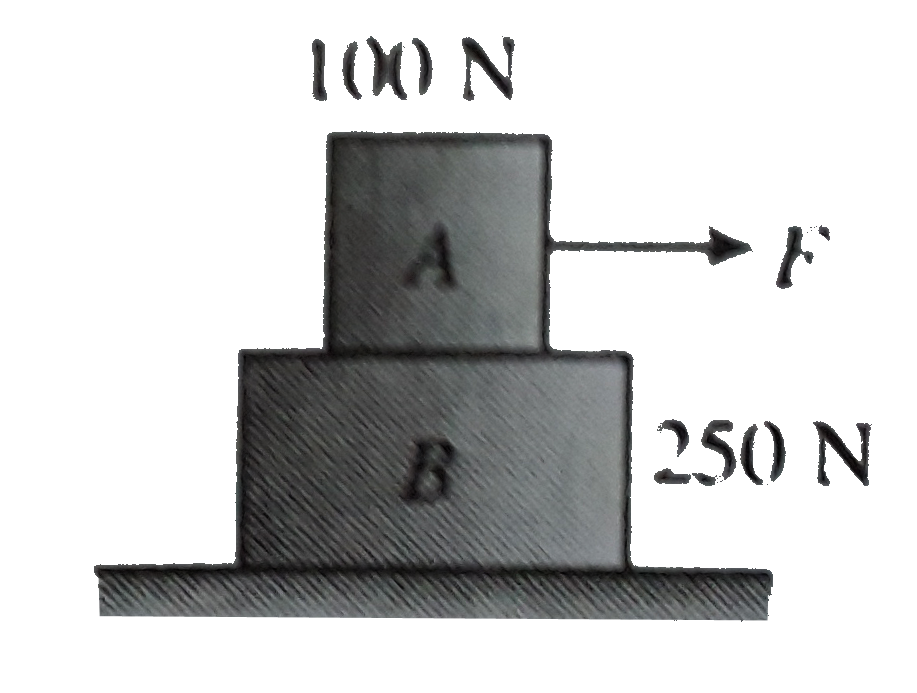
Acceleration of upper block is
View SolutionTwo blocks are connected over a massless pulley as shown in figure. The mass of block A is 10 kg and the coefficient of kinetic friction is 0.2 Block A sliders down the incline at constant speed. The mass of block B in kg is
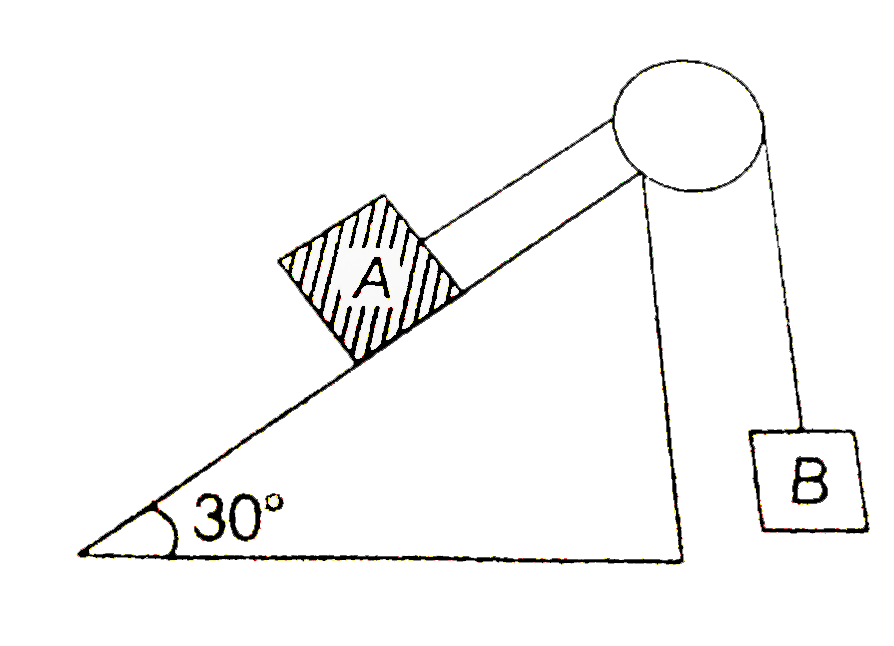
View Solution
